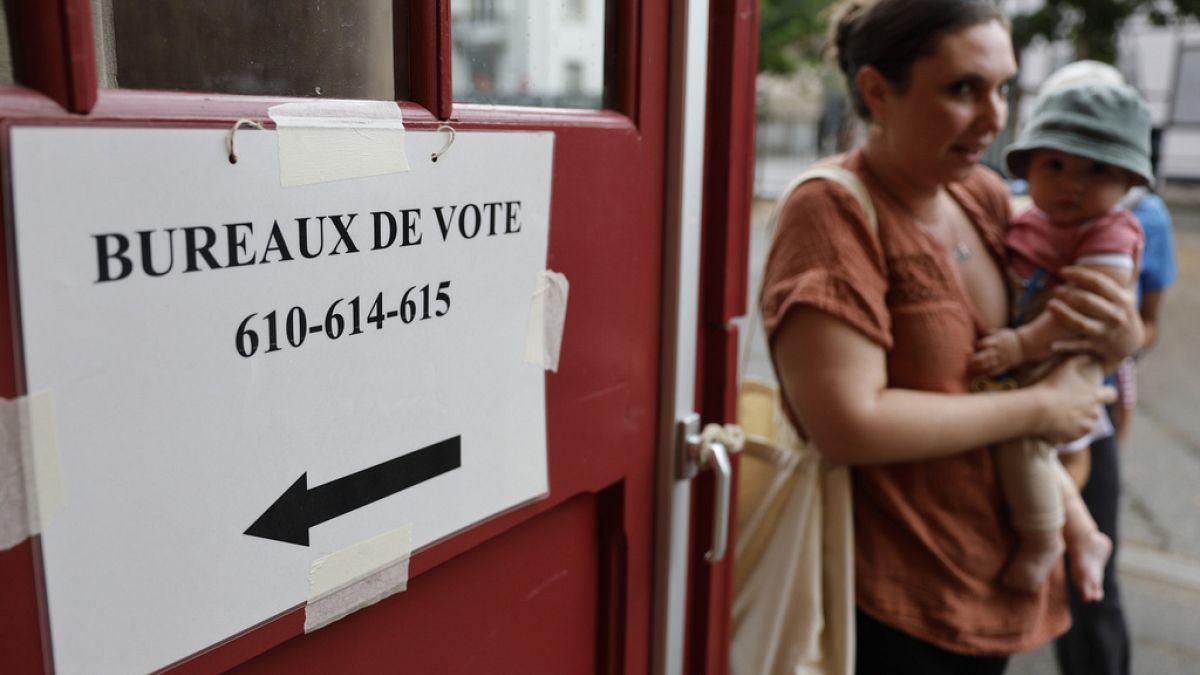The fate of France’s government hangs in the balance as voters across mainland France cast their ballots in an exceptional parliamentary election that could see nationalist, far-right forces take power for the first time since the Nazi era. The outcome of the two-round election, ending on July 7, has far-reaching implications for European financial markets, Western support for Ukraine, nuclear security, and global military affairs. Many French voters are disillusioned with inflation, economic issues, and President Emmanuel Macron’s leadership perceived as aloof and arrogant. Marine Le Pen’s anti-immigration National Rally party has capitalized on this discontent, dominating pre-election polls as a challenge to Macron’s centrist alliance, Together for the Republic.
In response to rising hate speech and divisive campaigning, voting commenced in France’s overseas territories with mainland polling stations opening early Sunday morning. The first polling projections, expected at 8 p.m., will give insight into voter sentiment, while official results will follow later that night. Macron’s decision to call the early election came after a disappointing showing for his party in the European Parliament elections, where the National Rally made significant gains. This maneuver was an attempt to rally moderate forces against the far right, although recent polls indicate the National Rally may be on track to gain a parliamentary majority, potentially leading to a “cohabitation” scenario with Macron remaining as president.
The rise of the National Rally and the left-wing New Popular Front has shaken up the political landscape in France, with both parties making bold promises to address key issues but raising concerns about increased public spending and France’s already heavy debt burden. Bardella, the National Rally’s President, lacking in governing experience, has outlined plans to halt weapons supply to Ukraine, citing ties to Russia, and restrict citizenship rights for certain individuals – moves that have sparked controversy and opposition among critics. The left-wing coalition has also made hefty spending pledges, further fueling apprehension about the country’s financial stability.
The intricate voting system and potential party alliances between rounds make predicting the final makeup of the National Assembly challenging. Historically, tactical maneuvers by parties have prevented far-right candidates from gaining power, but the broad support for Le Pen’s party may change the outcome this time. If the National Rally secures a parliamentary majority, Macron could face a weakened position both domestically and internationally, particularly considering the party’s contentious stances on critical issues. The results of the first round will serve as a barometer of voter sentiment, with the potential to reshape the political landscape in France and beyond.
As the first round of the parliamentary election unfolds, the world watches closely to see the direction in which France’s government will tilt. The implications go beyond national borders, impacting European relations, global security dynamics, and democratic principles. With the rise of nationalist sentiments and far-right movements, the stakes are high for France and the wider international community. The outcome of the election could signal a significant shift in power dynamics in France, potentially altering the course of European politics and shaping the future of Western democracy.











